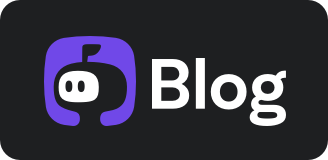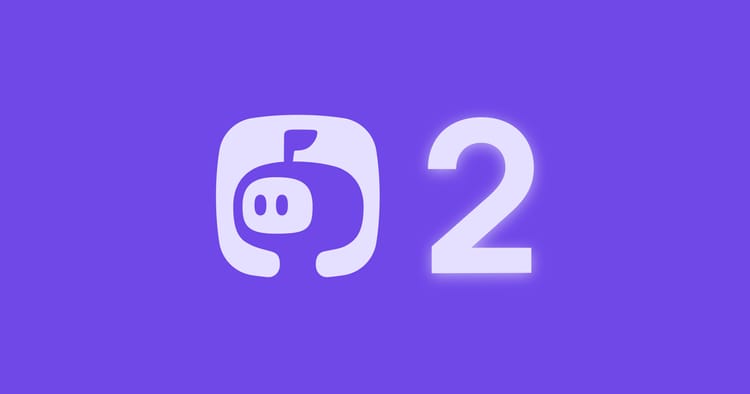How to maintain calendar sanity

Maintaining a sane calendar is hard, especially if you’re someone who likes helping people a lot but struggles to identify who deserves your time and who doesn’t.
I struggle with this a lot. Whoever asks for my help, I say ‘yes’ to hop on a call and later regret finding them under-prepared. I just fail to qualify who deserves my time and help.
This was until I heard from Paul McKellar something that he does to fix it. He has an exciting yet straightforward way of qualifying who is serious enough in their ask and who isn’t.
Here's what he does –
"Whenever I get a request for help, I just ask them to follow up after some time. It can even be a small follow-up. Most never get back, which eliminates more than 50% of the requests. They were probably not serious or ready enough for my help.
"But the ones who do follow up are the ones who have done their homework and are now ready for my help. I help most of them. Asking for a follow-up is just my way of qualifying if they’re serious enough and ready to receive my help."
As simple as asking for a follow-up can do wonders in getting you to help the people who are serious enough to receive it. It’ll also save you a ton of frustration and time that you’d otherwise spend trying to help those who aren’t ready or prepared for it yet.
It has solved my problem; now, I can help people without wasting my time.
I had a great time talking to Paul about rolling funds, how to find creative people, the delusion of founders, being a part of the Square founding team, his two-letter Twitter handle, and a lot more.
Let’s hear from Paul himself.
If you like this episode, please take a minute to share it around. Click here to get an auto-populated tweet.
Paul introduces himself

Hi, I’m Paul McKeller; I invest in startups. I’m investing in very few startups these days from my personal funds, but I’ve also invested in some rolling funds and did some options trading in the public markets last year. I’ve been involved with tech projects for 10+ years, including being a founding team member at Square and, before that, entrepreneur-in-residence at SVAngel.
These days I’m spending a lot of time reading about history and economics, although I have this internal debate on how useful that is.
Meeting up with strangers is another thing I’m doing more of. I like to spend as much time around creative people as possible. Usually, creative people before they’re founders, that is when they’re excited about something. It leads to exciting moments, and sometimes it even leads to investing in their companies when they start them.
On rolling funds
I’m thinking about doing a rolling fund. AngelList is doing an excellent job at it.
I feel it’s an opportunity that’s going to grow over time.
On finding creative people before they are founders
It’s about talking to interesting people and having exciting opinions. These interesting people introduce you to their friends, and you get to meet more interesting people.
The word ‘networking’ has a gross feel to it. It makes it feel like you’re going to a conference to get something, but if you’re just excited about stuff and talk about things you like, you’ll automatically attract interesting people without putting much effort into it. That’s how at least how I do it.
Blindspots of creative people
Here’s a real story, a friend of mine was a management consultant, her job effectively was to go in and tell CEOs how to do their job. She told them a lot of clever things like, “inventory is expensive.” Bizarrely, when she was starting her startup, she had a lot of inventory, and she was like, “it’s so expensive as I have these storage costs and all these things.”
There’s something weird about the fact that she could teach this idea to someone else, but it was more challenging when it came to applying it to her own life. Things might seem obvious from the outside perspective, but it’s hard to be what you’re teaching others sometimes.
She ended up doing exceptionally well at her startup. It was very rewarding to see that. I’m trying to say that every once in a while, you get lucky by being at the right place at the right time and giving people advice. But you might not be following that advice yourself; those are some of the blindspots creative people have.
The delusion of founders
There’s definitely some amount of delusion in founders that helps them stay motivated. To them, it always feels like success is just around the corner, and sometimes it can feel that way for five years. But it turns out success is about making half a percent improvements every week for about five years. You don’t realize these small wins compound over time, but they do. Founders do need a bit of delusion to make those small improvements for an extended period.
Success is about making half a percent improvements every week for about five years.
People don’t realize how hard it is to startup
Most people don’t realize how much work it is to startup and how many times they’ll hear a ‘no.’ Sometimes, early employees at companies talk to me about starting a company. I try to condition them for their 1st fundraise, telling them that if they talk to 50 people, then 30 will say no, or if they talk to 200 people, 150 will say no.
When I tell them this, they just can’t believe that people will say ‘no’ to investing in their companies because, in their head, their company is a perfect thing as they haven’t started it yet. It is only when they begin that they realize how hard it is to produce a vision that can be compelling to other people, and then they’ve to convince someone that it’s worth risking their money on that vision.
It is easy to criticize other people’s startups and thinking it’ll be easy to recreate them. Still, you don’t know the thousands of decisions that went into building it and the crazy amount of effort it takes just to build an excellent experience.
If you like this episode, please take a minute to share it around. Click here to get an auto-populated tweet.
Paul’s beginnings
I’ve definitely had a winding career. In high school, I just loved the web. My friend Jessie got me into programming in middle school. Then the web came out, and I started making websites. There weren’t any apps or even cell phones at that point.
Then I went to electrical engineering as I thought that would be about programming, which was naive. I became an electrical engineer and worked at airplane parts in various capacities. But I was always working on websites on the side, and I applied to Y Combinator, which was a huge direction change in my career. Y Combinator wasn’t that big or popular as it is now. Back then, many people considered Y Combinator a rip-off as they were taking a huge percentage of equity for a relatively small amount of money.
It might seem obvious in retrospect, but Y Combinator was like a doorway to the valley. If you’re someone who doesn’t know where to start or just wants to be around people who want to start something, Y Combinator was the place to be. It still is in many ways.
After Y Combinator, I made some Facebook apps that went really viral and got some news because of that. I was also working on credit card payments with my roommate, which was his idea, and I was helping him. Because of that, I ended up talking to angels about credit card payments. Then, someone mentioned that Jack Dorsey, who I already knew previously, was working on something called ‘Squirrel.’ Yeah, it was called Squirrel back then. Now, it’s Square
I ended up joining Square as part of the founding team as I was excited and invested in the space already. Also, the idea of working in banking sounded ambitious.
Like right now, starting a rocket company will sound really hard; in 2010, creating a bank sounded really hard.
Paul’s typical day
A typical day and an ideal day are very different. Talking about my typical day, I usually wake up around 7 am. There are three things I try to do on a typical day. I try to work out regularly, and workouts don’t need to be super strenuous. A 3-mile walk to the park would do.
I do my daily pages, a mindful activity inspired by the book “The Artist’s Way.”The book’s been around for 25-30 years, and it’s really popular. The ‘daily pages’ activity is basically like journaling, writing down some ideas, and figuring stuff out early on in the day.
I also write down three things I want to accomplish during the day. If I get these three things done early, I feel unburdened and can spend the rest of the day the way I want to. These three things don’t necessarily have to be big tasks, they can be a minor thing in the world, but they have to be the most important. It can even be something as simple as replying to an email.
I like giving myself a fixed number of things before I can reward myself by going to a park or getting some sunlight.
Favorite science fiction book
There’s this book that I like recommending called “Tomorrow and Tomorrow” by Charles Sheffield. There are two books by that title; make sure you pick the one by Charles Sheffield.
One thing I love about the book is the time scale in the book is extraordinary. Most books play around 10-15 years, but the time scale of “Tomorrow and Tomorrow” lasts for as long as the universe itself.
On keeping the calendar under control
When people want to talk to me for seeking investment, or they want advice on something, or they want to discuss a project they want to work on with me, I usually make time for it.
Sometimes, it feels vague, as in they’re not sure what they want and are just exploring; I avoid those. The more work people have done before the meeting request, the better.
A way I use to filter our non-serious requests from serious ones is by asking them to follow up. Most never get back, which automatically eliminates their request and makes it easier for me.
Saying ‘yes’ to meetings you get nothing out of
I usually say yes to meetings where I see the other person can benefit by talking to me, even if I don’t get anything out of it. I feel it’s part of the valley culture to help people who are trying to do something. If someone gives me a specific ask and tells me how it will help them, I’m more than happy to get on a call.
It also aligns with my personal goal of hanging out with intelligent and creative people. These meetings are a no-brainer for me as long as people show commitment.
His interesting new year resolution
I spent New Years’ with a family that had a habit of chewing their food a lot. They chewed for 4 hours while they were eating dinner. My new year resolution is to chew a lot. It takes so much effort, and you can imagine if you take the tiniest bite and chew it until the food is literally liquid. I believe it’s a very positive health habit.
Most people eat as fast as possible so that they can get back to work; I’m doing the opposite.
This makes the food taste better in my opinion, and it makes you more present. The food does get cold, though, which isn’t a very good thing.
It takes almost twice the time to finish your food if you’re chewing every bite, and it also makes you eat less, which might be suitable for some people and not good for others. It’s different for different people. I just find value in it for myself.
Favorite apps to kill time
I spend a lot of time on Reddit, TikTok, Clubhouse, and I tweet a lot. I also love taking pictures, but I don’t post them on Instagram that much. Those are my primary time wasters or time spenders.
One extra hour a day
Suppose it’s an additional hour from the mindset of putting more things in your day. In that case, I’m going to push back as I don’t think there is a need for an extra hour. I feel, if you’re working on the essential things in the order that they’re important, I don’t think anyone would need an extra hour.
I think we should all give ourselves room to breathe and let ourselves do what’s important. So even if I get one extra hour, things will mostly remain the same for me.
Life isn’t all about compounding
Most people don’t realize this, but life isn’t all about compounding. We should all be spending parts of our lives enjoying it because the things you’re trying to compound for might not come to fruition or lead to your desired place.
People spend their entire life saving for retirement, but they should be spending some time traveling and enjoying as they go.
The story behind his two-letter Twitter handle
I wasn’t an early adopter of Twitter. I joined the platform somewhere around the first year, so not really early, but still early compared to many.
The reality is I just know the founders, so they upgraded my account. Just a classic case of being at the right place at the right time and knowing the right people.
How to reach Paul?
You can follow me on Twitter (@pm) and Instagram (@pm). Twitter is where I’m most active.





